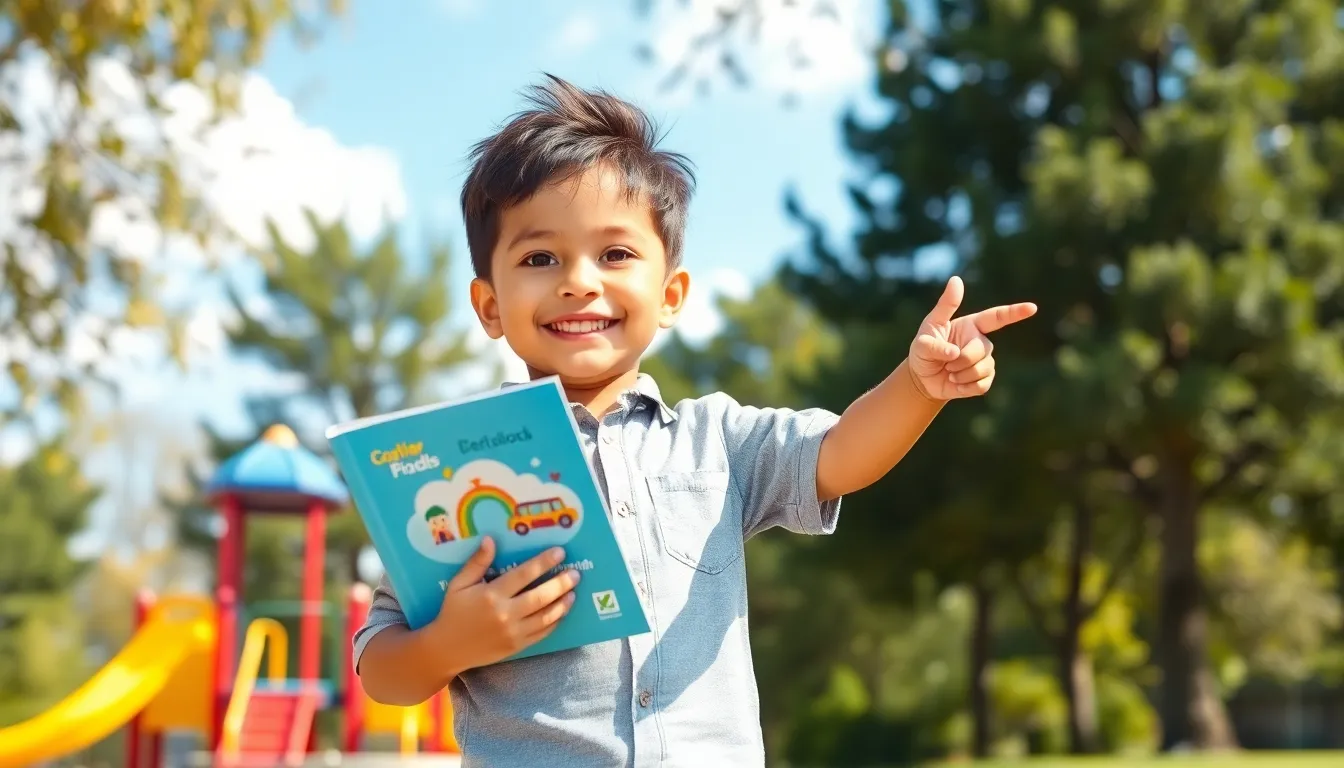When it comes to parenting styles, authoritative parenting often struts onto the scene like the confident kid in the schoolyard. Balancing warmth and structure, it’s the parenting style that says, “I love you, but I also expect you to clean your room.” This approach has its fans and critics, sparking debates that could rival a heated game of Monopoly.
But what’s the real scoop? Is authoritative parenting the golden ticket to raising well-adjusted kids or just another recipe for potential chaos? In this article, we’ll dive into the pros and cons of this popular style. Whether you’re a seasoned parent or just contemplating the adventure, understanding these dynamics can help navigate the wild world of parenting with a smile (and maybe a few laughs).
Table of Contents
ToggleOverview of Authoritative Parenting
Authoritative parenting stands out as a prominent style that blends nurturing and discipline. It emphasizes open communication alongside established rules. Parents adopting this style often encourage children to express their feelings and opinions.
This approach fosters a warm environment while also outlining clear expectations. Research by Baumrind, a leading psychologist, identifies authoritative parenting as effective in promoting positive child development. Children raised in such settings typically display higher self-esteem, improved social skills, and better academic performance.
Key features define authoritative parenting. Parents provide support while maintaining control over behavior. They employ reasoning to guide decisions rather than relying solely on punishment. This nurturing yet structured method cultivates resilience and independence in children.
Expectations set by authoritative parents focus on mutual respect. Children learn to understand the importance of boundaries and consequences. As a result, they often develop a stronger sense of responsibility for their actions.
Parental involvement marks another critical aspect of this style. Active participation in a child’s life, from school events to extracurricular activities, strengthens the parent-child bond. This connection promotes trust and security, which help children navigate challenges.
Authoritative parenting combines warmth with structure, contributing to the potential for well-adjusted children. Insights into this parenting style reveal its advantages while also prompting discussions about possible drawbacks. By exploring authoritative parenting, parents can make informed decisions about their approach to raising children.
Pros of Authoritative Parenting

Authoritative parenting offers several advantages that positively influence child development and overall well-being.
Encourages Independence
Children experience increased independence in an authoritative environment. Parents provide opportunities for their kids to make choices and learn from mistakes. This approach fosters self-reliance, allowing children to develop confidence in their decision-making skills. They also learn to navigate challenges, building resilience. By encouraging age-appropriate responsibilities, parents cultivate a sense of accountability in their children.
Promotes Emotional Health
Emotional health flourishes under authoritative parenting. Open communication lines enable children to express feelings without fear of judgment. This practice deepens emotional intelligence, equipping kids to understand and manage emotions effectively. Supportive parents guide children through difficult situations, reinforcing coping strategies. Consequently, children raised in this style often exhibit lower levels of anxiety and depression.
Enhances Academic Success
Academic success often results from the foundations laid by authoritative parenting. Research indicates that children in authoritative households achieve higher grades and exhibit better overall performance in school. Parents who prioritize education and encourage exploration stimulate intellectual curiosity. Additionally, they foster a love for learning by engaging in their child’s academic journey. Structured support combined with expectations promotes a strong work ethic and academic resilience.
Cons of Authoritative Parenting
Authoritative parenting has its challenges that can impact both children and parents.
Potential for Over-Expectations
Expectations in authoritative parenting may sometimes exceed a child’s capabilities. Parents often set high standards for academic performance and behavior. Striving for excellence can lead to feelings of inadequacy in children who struggle to meet these goals. Constant pressure to achieve may foster anxiety or perfectionism. Feedback from parenting experts indicates that not all children can thrive under such demanding circumstances. Recognition of individual strengths becomes essential to avoid overwhelming young learners.
Balancing Discipline and Nurturing
Balancing discipline and nurturing in authoritative parenting can prove tricky. While structure and clear rules are integral, overly strict enforcement may lead to resentment. Children value freedom, and conflicts may arise when they feel controlled. Parents must navigate this tightrope, ensuring rules do not overshadow emotional support. Research shows that misbalancing these aspects can negatively affect parent-child relationships. Flexibility within established boundaries encourages healthy engagement while mitigating clashes. It’s important to find that sweet spot where discipline complements nurturing for optimal development.
Comparison with Other Parenting Styles
Authoritative parenting contrasts sharply with authoritarian and permissive styles. Authoritarian parenting emphasizes obedience and strict discipline, often leading to high levels of stress in children. Children raised in this environment might struggle with low self-esteem or poor social skills due to a lack of emotional support.
Permissive parenting, on the other hand, focuses heavily on nurturing but lacks sufficient structure. Children in permissive households may grow accustomed to having few boundaries, resulting in entitlement or challenges with self-discipline. Authoritative parents maintain a balance of warmth and expectations, which supports children in becoming responsible and independent.
Research shows that children raised under authoritative parenting often outperform peers in academic and social settings. According to studies by Baumrind, authoritative parenting results in better emotional health. Children exposed to consistent rules and empathetic communication develop not only resilience but also enhanced emotional intelligence.
Similar comparisons reveal distinctive outcomes in child development. Children from authoritarian settings may exhibit increased anxiety and defiance due to a lack of autonomy. Contrarily, those from permissive backgrounds might face difficulties with authority and impulse control.
Implementing authoritative parenting leads to better long-term success. Children learn to navigate challenges effectively, equipped with both support and boundaries. In contrast, the lack of structure in permissive homes can prevent essential skill development, while authoritarian styles can hinder emotional expression. Balancing nurturing with discipline proves essential for overall child well-being, and authoritative parenting often strikes that necessary equilibrium.
Authoritative parenting offers a unique blend of warmth and structure that can significantly benefit children’s development. By fostering independence and emotional intelligence, it equips kids with essential life skills. However, the approach isn’t without its challenges. Parents must navigate the fine line between setting expectations and allowing freedom, which can sometimes lead to stress for both parties.
Ultimately, finding the right balance is key. When executed thoughtfully, authoritative parenting can create a nurturing environment that promotes resilience and responsibility, paving the way for well-adjusted individuals ready to face life’s challenges.



